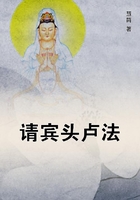Even when we come to Bruno who wrote that "to the sound of the harp of the Universal Apollo (the World Spirit), the lower organisms are called by stages to higher, and the lower stages are connected by intermediate forms with the higher," there is great room, as Prof. Osborn points out (op. cit. page 81.), for difference of opinion as to how far he was an evolutionist in our sense of the term.
The awakening of natural science in the sixteenth century brought the possibility of a concrete evolution theory nearer, and in the early seventeenth century we find evidences of a new spirit--in the embryology of Harvey and the classifications of Ray. Besides sober naturalists there were speculative dreamers in the sixteenth and seventeenth centuries who had at least got beyond static formulae, but, as Professor Osborn points out (op. cit. page 87.), "it is a very striking fact, that the basis of our modern methods of studying the Evolution problem was established not by the early naturalists nor by the speculative writers, but by the Philosophers."He refers to Bacon, Descartes, Leibnitz, Hume, Kant, Lessing, Herder, and Schelling. "They alone were upon the main track of modern thought. It is evident that they were groping in the dark for a working theory of the Evolution of life, and it is remarkable that they clearly perceived from the outset that the point to which observation should be directed was not the past but the present mutability of species, and further, that this mutability was simply the variation of individuals on an extended scale."Bacon seems to have been one of the first to think definitely about the mutability of species, and he was far ahead of his age in his suggestion of what we now call a Station of Experimental Evolution. Leibnitz discusses in so many words how the species of animals may be changed and how intermediate species may once have linked those that now seem discontinuous. "All natural orders of beings present but a single chain"..."All advances by degrees in Nature, and nothing by leaps."Similar evolutionist statements are to be found in the works of the other "philosophers," to whom Prof. Osborn refers, who were, indeed, more scientific than the naturalists of their day. It must be borne in mind that the general idea of organic evolution--that the present is the child of the past--is in great part just the idea of human history projected upon the natural world, differentiated by the qualification that the continuous "Becoming" has been wrought out by forces inherent in the organisms themselves and in their environment.
A reference to Kant (See Brock, "Die Stellung Kant's zur Deszendenztheorie," "Biol. Centralbl." VIII. 1889, pages 641-648. Fritz Schultze, "Kant und Darwin", Jena, 1875.) should come in historical order after Buffon, with whose writings he was acquainted, but he seems, along with Herder and Schelling, to be best regarded as the culmination of the evolutionist philosophers--of those at least who interested themselves in scientific problems. In a famous passage he speaks of "the agreement of so many kinds of animals in a certain common plan of structure"...an "analogy of forms" which "strengthens the supposition that they have an actual blood-relationship, due to derivation from a common parent." He speaks of "the great Family of creatures, for as a Family we must conceive it, if the above-mentioned continuous and connected relationship has a real foundation." Prof. Osborn alludes to the scientific caution which led Kant, biology being what it was, to refuse to entertain the hope "that a Newton may one day arise even to make the production of a blade of grass comprehensible, according to natural laws ordained by no intention." As Prof. Haeckel finely observes, Darwin rose up as Kant's Newton. (Mr Alfred Russel Wallace writes: "We claim for Darwin that he is the Newton of natural history, and that, just so surely as that the discovery and demonstration by Newton of the law of gravitation established order in place of chaos and laid a sure foundation for all future study of the starry heavens, so surely has Darwin, by his discovery of the law of natural selection and his demonstration of the great principle of the preservation of useful variations in the struggle for life, not only thrown a flood of light on the process of development of the whole organic world, but also established a firm foundation for all future study of nature"("Darwinism", London, 1889, page 9). See also Prof. Karl Pearson's "Grammar of Science" (2nd edition), London, 1900, page 32. See Osborn, op. cit. Page 100.))
The scientific renaissance brought a wealth of fresh impressions and some freedom from the tyranny of tradition, and the twofold stimulus stirred the speculative activity of a great variety of men from old Claude Duret of Moulins, of whose weird transformism (1609) Dr Henry de Varigny ("Experimental Evolution". London, 1892. Chap. 1. page 14.) gives us a glimpse, to Lorenz Oken (1799-1851) whose writings are such mixtures of sense and nonsense that some regard him as a far-seeing prophet and others as a fatuous follower of intellectual will-o'-the-wisps. Similarly, for De Maillet, Maupertuis, Diderot, Bonnet, and others, we must agree with Professor Osborn that they were not actually in the main Evolution movement. Some have been included in the roll of honour on very slender evidence, Robinet for instance, whose evolutionism seems to us extremely dubious. (See J. Arthur Thomson, "The Science of Life". London, 1899.
Chap. XVI. "Evolution of Evolution Theory".)















